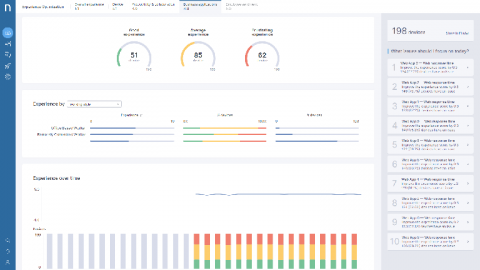Operations | Monitoring | ITSM | DevOps | Cloud
Latest News
The Importance of "Soft" Skills in the Digital Age
One Company, Multiple Monitoring Mindsets
Monitoring plays a critical part in the success of any business that relies on its digital services. Businesses want to understand the end-user experience, which enables or hinders good end-user experience, and how it relates to their business revenue. It plays a crucial role in answering some critical questions. Interestingly, our recent 2020 CIO Survey results highlight how the monitoring approach adopted by top/bottom tier organisations impact the overall business metrics.
PagerDuty to Acquire Rundeck
Today is a great day for PagerDuty customers, practitioners, partners, and employees as we’ve entered into a definitive agreement to acquire Rundeck, a Californian start-up that’s a leader and innovator in DevOps automation. Before I get into the technicalities of what our solutions can do together, let me first set the scene on why we decided to do this, now.
PagerDuty: Simplified Pricing and More Value
We are simplifying our pricing plans to provide you, our customers, with more value and to help you more easily choose the right package for your team and organization. Whether your team is just getting started with on-call or you’re ready to take a more proactive approach to digital operations, PagerDuty has a plan that is right for you. Read on to learn more about our new plan options, find out what’s best for your team’s needs, and see how PagerDuty can grow with you.
The PagerDuty Platform Release: It's Time to Master Digital Operations
Even before the COVID-19 pandemic, increasingly complex and often distributed technology environments posed a challenge for software-driven enterprises. Now, the global health catastrophe has accelerated digital transformation timelines and forced a complete shift to digital interactions between enterprises and customers, as well as internally between teams and coworkers. What IT professionals have accomplished in the past 6 months is nothing short of astounding.
Enterprise monitoring software: what to know before choosing
Finding an enterprise monitoring software is not an easy task. On the one hand, there are multiple options on the market that offer solutions of all kinds. On the other hand, you know that the implementation and eventual replacement of a tool with these features can be a burden and that, if you make a bad decision, you will regret it later.
How to configure HTTPS for an Nginx Docker Container
There are a few ways to effectively configure HTTPs for an Nginx Docker Container. In this guide, we will quickly cover configuration through the use of free certificate authority Let’s Encrypt. For plenty of people, using Let’s Encrypt to configure HTTPS for an Nginx docker container is a good option. A paid version like Comodo’s SSL certificates may make more sense if you want to increase the security of your site and server.
Nexthink Further Enhances UI for Experience Platform
In February 2020, Nexthink introduced its new design system, Apollo. While it unveiled some great new accessibility and design features, its true raison d’être was everything happening on the back-end, a powerful new design engine to scale and accelerate the roll-out of new features. Well, 6 months later and here we are. As promised, this latest round of enhancements offers several intuitive modifications to make IT’s life easier when supporting the Digital Employee Experience.
TL;DR InfluxDB Tech Tips - How to Use the CLI Locally to Access the Flux REPL and Write a Regular CSV to InfluxDB Cloud
In this post we share how to use the InfluxDB CLI with InfluxDB Cloud. This TL;DR assumes that you have registered for an InfluxDB Cloud account – registering for a free account is the easiest way to get started with InfluxDB.










